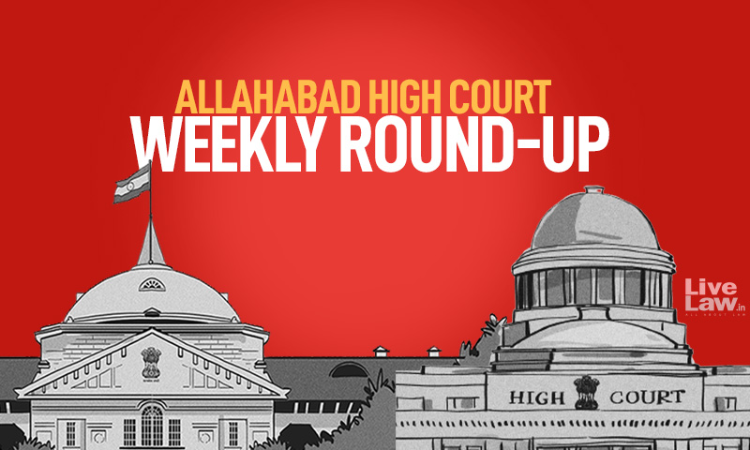Allahabad High Court Weekly Round-Up: July 1 – July 7, 2024
LIVELAW NEWS NETWORK
11 July 2024 10:45 PM IST
NOMINAL INDEX Maharaj Kumari Vishnupriya v. State of U.P. and 2 Ors. 2024 LiveLaw (AB) 414 Kailash vs state of UP 2024 LiveLaw (AB) 415 S. Vignesh Shishir vs. Rahul Gandhi, Member Of Lok Sabha And Others 2024 LiveLaw (AB) 416 Ibne Haidar And 8 Others vs. State Of U.P. And 7 Others 2024 LiveLaw (AB) 417 State Of U.P. And Others vs. M/S Harish Chandra India Limited 2024...
Next Story



